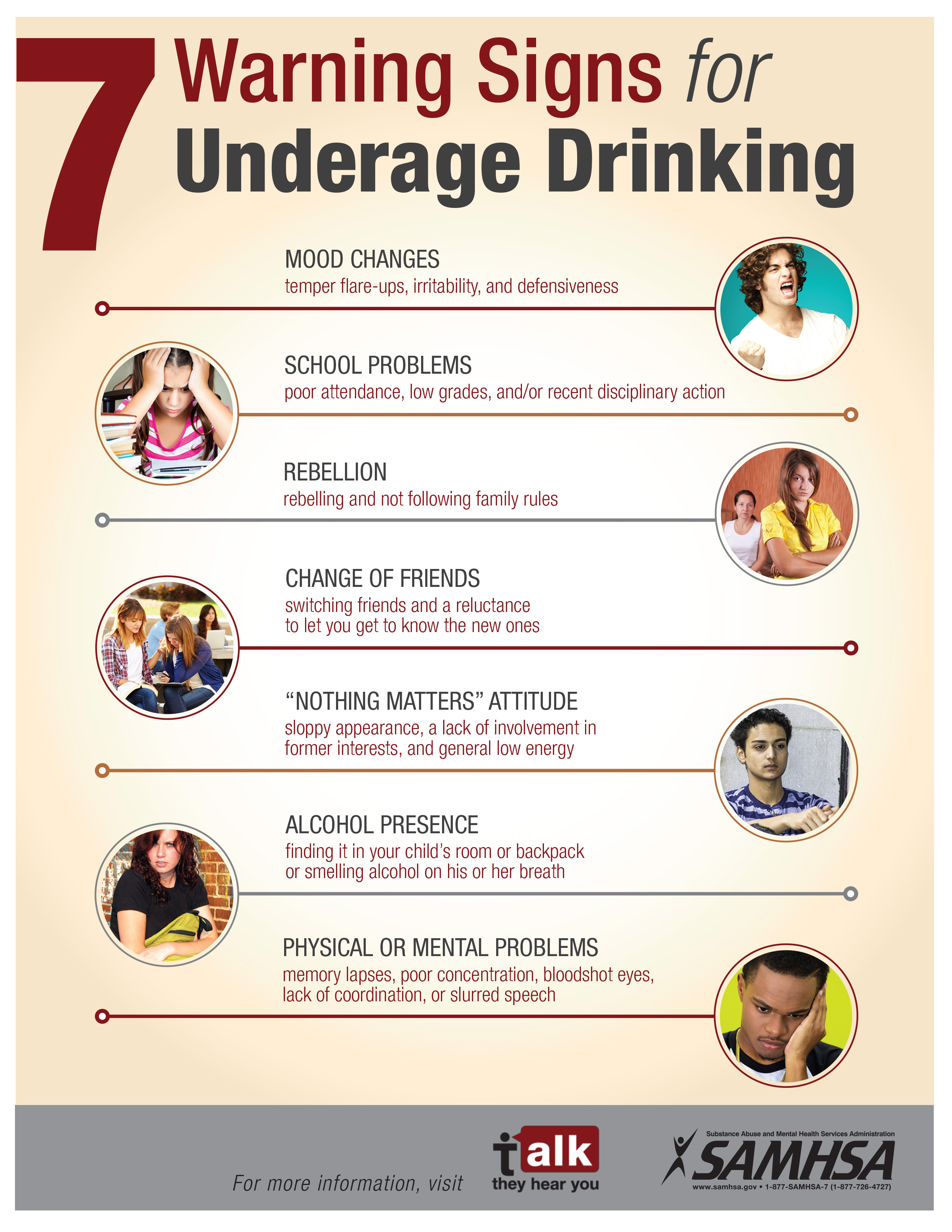Warning Signs of Underage Drinking and Alcohol Abuse
Although statistics indicate that alcohol consumption is down among teens, underage drinking and teen alcohol abuse is still a major problem that can be deadly. Recent statistics show that 29% of high school students consume alcohol at least once per month.
For example, according to the Centers for Disease Control (CDC):
- Motor vehicle crashes are the leading cause of death for US teens age 16-19.
- Seven teens die due to alcohol use and driving each day.
- 15% of teenage drivers involved in fatal crashes in 2018 had some alcohol in their system – more than 81% had BAC levels higher than the legal limit for adults.
In addition, teen alcohol use can affect the ability to function in school, at work, or in social settings, creating terrible consequences that extend past health. As a parent, it is imperative to identify the signs of teen alcohol use, so you can take steps to prevent teen alcoholism and binge drinking.
Warning Signs of Teen Alcohol Use
- You find alcohol in your kid’s room or among your kid’s possessions.
- You smell alcohol on your kid’s breath or notice physical symptoms of intoxication, like slurred speech or bloodshot eyes.
- Your kid experiences mood changes that are not within his or her normal behavior.
- There are problems in school, like poor attendance or low grades.
- Your kid stops hanging out with his or her friends and develops a “nothing matters” attitude.
If you notice these warning signs and are concerned about your kid’s alcohol use, enlisting him or her into a reputable teen residential treatment program may be your best option. Residential treatment for alcohol abuse, including teen alcoholism, binge drinking, or other substance abuse, is one of the most effective ways to treat the problem and prevent a relapse.
When alcohol use disorder is present, the brain changes how it processes information, and its number one priority is to get more alcohol. Teens are at greater risk of permanent brain changes because their brains are still developing. This is why outpatient programs are not as effective because old habits often return if the patient is not in a controlled setting where they can receive the treatment they need.
Additionally, stopping alcohol use is incredibly difficult because of the psychological aspects of the addiction; the physical withdrawal symptoms are often painful and can even be deadly if the disease has progressed far enough. It is crucial to seek the help of professionals if your son or daughter is drinking excessively and can no longer stop.
We encourage you to learn more about youth residential substance abuse treatment here to determine whether it is suitable for your teen in need.
How to Get Treatment for Underage Drinking or Abusing Alcohol
Excessive alcohol use and addiction have a significant impact on adolescent life choices and their future. When confronted with this situation in your family, there are two forms of treatment – as an outpatient or an inpatient.
The outpatient attends the treatment facility during the day, participates in all the activities of the alcohol recovery program, and at the end of the day goes home. The inpatient programs have better outcomes. This is because they participate fully on all the activities and live in the residential treatment center until they recover.
Teens in a residential treatment center have a distinct advantage; full-time care. Staff at the treatment center are trained professionals and experts in working with teens in recovery. They are on duty 24/7 and can assist those residents who may be having physical and mental difficulties at any time of the day or night.

Is Your Adolescent an
at risk Youth?
Are you concerned that your child's behavior is heading down the wrong path? Take the Behavioral Test to find out if your child is at risk.
Take the QuizEnroll Your Teen in a Residential Program
If counseling and therapy failed, speak to a counselor today about financial options for At Risk Youth Program Placement.
Get More Information











